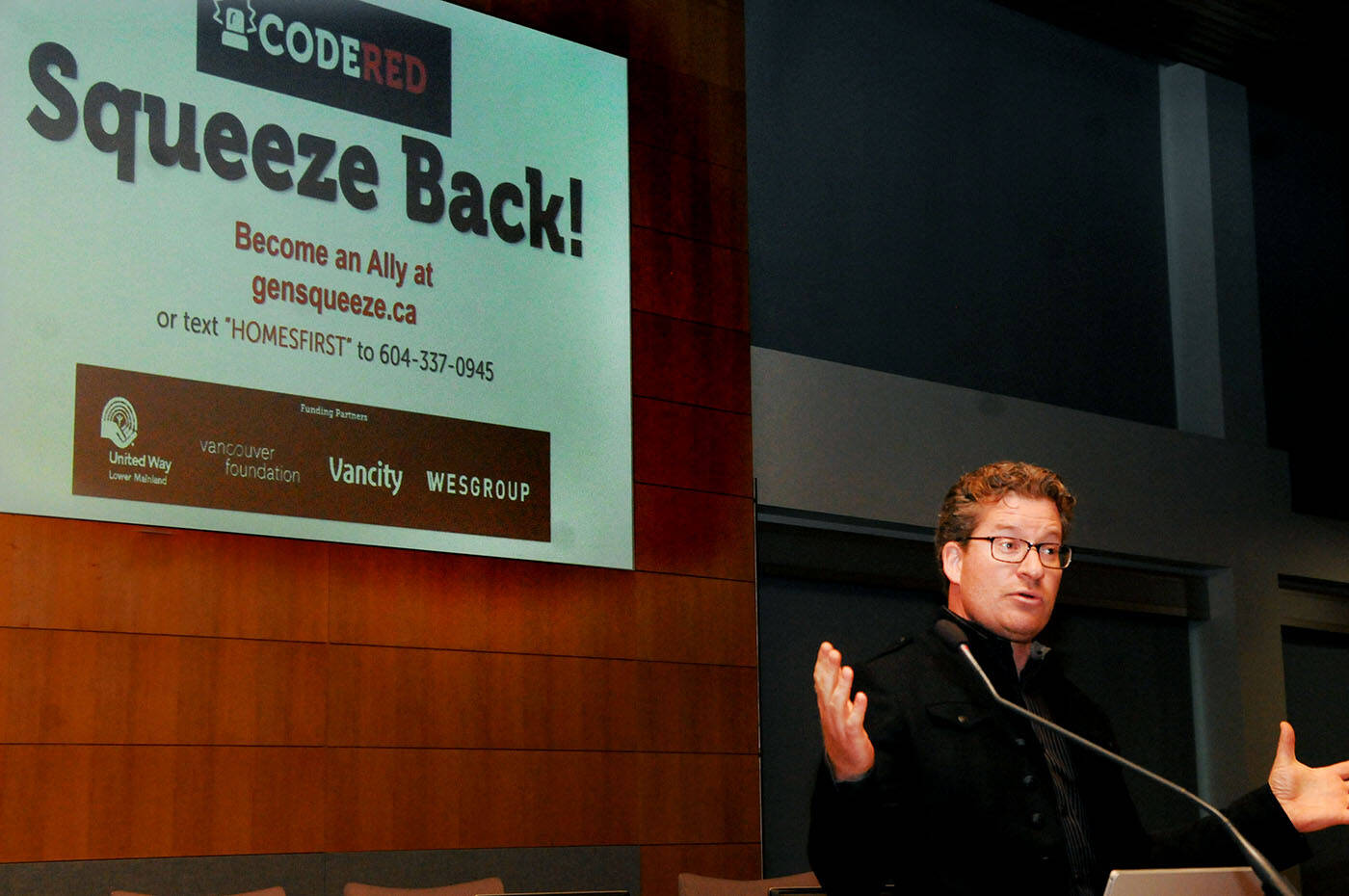An advocate for better housing policies says the housing wealth of older generations is contributing to housing insecurity among younger generations in calling for higher taxes on the house-wealthy.
“Those of us who have extracted so much of it (wealth), myself included, from the housing system, we have to be asked to potentially contribute more now because our gains from housing are causing such housing insecurity for those who follow,” Paul Kershaw, Professor in the UBC School of Population and Public Health, said.
Kershaw, founder of Generation Squeeze, made these comments after the release of recent study from Statistics Canada, that shows children born in the 1990s are more likely to become home-owners if their parents are home-owners.
“Inequality of home-ownership appears to be reproduced across generations as parents’ property ownership conveys significant financial advantages to their children,” it reads. In other words, inequality now produces inequality later with the effects “strongest in housing markets with less affordability, weaker rent controls and less stringent mortgage lending conditions.”
Kershaw said the study’s findings are not surprising, but broadly confirm the effects of inequality within generations and between generations.
“This data is showing that housing wealth is just such a driver of affluence these days, even more so than income,” he said, adding that society has tolerated the emergence of a housing market disconnected from the rewards of hard work. That development should cause great alarm, he said.
“Hard work is not enough any longer,” Kershaw said. “Now, you are needing to have attachment to somebody who is going to gift you wealth. Wow, that is the erosion of the Canadian dream.”
RELATED: ‘Bank of Mom and Dad’ helps fuel home ownership for young B.C. adults
RELATED: Tax shelter fuels ‘cultural addiction’ to high and rising home prices: advocate
Kershaw said the study confirms the need for a tax shift.
“We need to recognize what is driving affluence is less about income these days and more about wealth and especially the security that comes with housing wealth,” he said.
Such a tax shift could mean cutting the income taxes of people who earn low- to-middle-incomes, coupled with higher taxes on housing wealth, he added.
Such a measure could be a surtax on property values above $1 million. Such a surtax start relatively small at the $1-million level, then go up, Kershaw said.
“That would be a significant way to raise billions of additional dollars, by which we could then at the societal level better invest into deeply affordable housing,” he said, adding income-tax cuts for low-to-middle-income earners would stretch their housing budgets.
Kershaw said polling shows a lot of support for such a surtax, while acknowledging that the introduction of such a tax would require some persuasion.
“Of course, adding a new tax is never the easiest thing for politicians to do,” he said. “I think we need a cultural update.”
Kershaw also acknowledged that older demographics might stand in the way of a tax system focused more on wealth than income, but polling also shows that younger people are already wielding influence, pointing to the growing support among young people for the Conservative Party of Canada at the expense of the federal Liberal Party.
“If you look at the current political moment, there is deep, deep anxiety among the federal Liberal party that they are losing young voters to (federal) Conservatives,” he said. “All (Pierre) Poilievre has to do is express anger and share the grief of younger demographics being locked out.”
Kershaw said current narratives among politicians focuses on supply.
“But if supply were the primary answer to unaffordability in this country, then Alberta would have higher high costs than B.C. and Alberta, because per capita they have less supply.”
While Kershaw acknowledged the need to build “millions of more units,” attention must also fall on inter-generational wealth and inequality.
“We need politics to weigh in and name that and respond in part with the kind of tax shift you and I were just discussing.”
The Ministry of Housing said in a statement that government is committed to making everyone has access to safe and affordable homes, pointing to the government’s housing agenda, which saw the passage of the four major housing bills.
“Some of these changes, like the actions taken to allow small-scale multi-unit housing in neighbourhoods that were previously restricted to single-family housing, will help to deliver an increased number of homes that are more affordable to first-time buyers, like townhomes, triplexes, and houseplexes,” it reads.
The ministry is also pointing to the First Time Home Buyers’ Program as an another tool British Columbians can use to help bring home ownership within reach with 8,000 home buyers using the program in 2022.
BC Green House Leader Adam Olsen also seized on the StatsCan study during the last fall session and the economic modelling behind legislation increasing density warns of distorting effects that could perpetuate inequalities.
“In the absence of value capture, we expect any windfall gains from rezoning to accrue primarily to incumbent property owners, which can exacerbate inequalities in wealth without the landowner providing a social benefit,” it reads.
RELATED: Political opposition in B.C. tears down housing models
@wolfgangdepner
wolfgang.depner@blackpress.ca
Like us on Facebook and follow us on Twitter.

